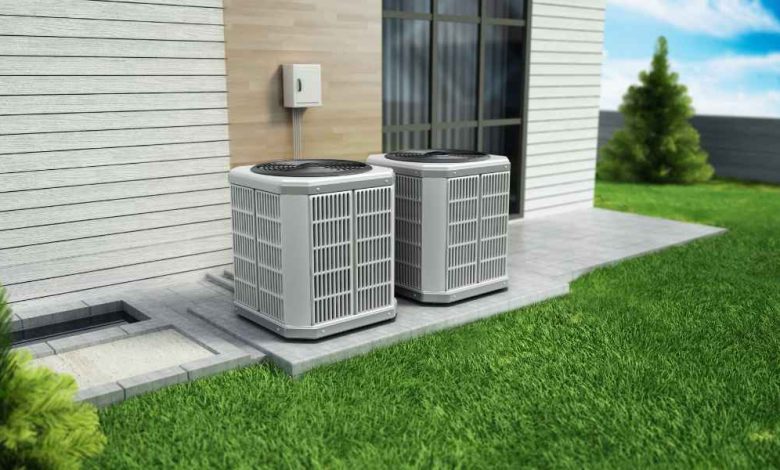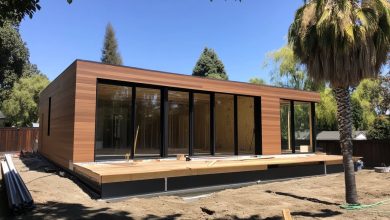RV Air Conditioner Repair: Everything You Need to Know
RV Air Conditioner Repair: Everything You Need to Know

Recreational vehicles (RVs) are designed for long road trips, outdoor adventures, and comfortable living while on the move. One of the essential components that ensures comfort inside an RV, especially during hot weather, is the air conditioner. When it malfunctions, the experience can quickly become unbearable. Understanding the ins and outs of RV air conditioner repair is crucial to maintaining a cool and comfortable environment inside your vehicle.
In this guide, we’ll cover the most common issues that arise with RV air conditioners, how to troubleshoot them, and when it’s time to seek professional repair services.
Why Is RV Air Conditioner Maintenance Important?
Just like your home air conditioner, the AC unit in your RV requires regular maintenance. Proper upkeep helps to:
- Prolong the lifespan of your air conditioner
- Maintain energy efficiency, reducing strain on your RV’s power supply
- Prevent unexpected breakdowns during your travels
- Ensure a consistently cool environment inside your RV
Failing to maintain your air conditioner can lead to more frequent repairs and higher costs in the long run.
Common Issues with RV Air Conditioners
RVs, by nature, are exposed to various outdoor elements, which makes their air conditioning systems prone to specific problems. Here are some of the most common issues that RV owners encounter:
1. Lack of Cooling Power
One of the most noticeable issues is when the air conditioner is running, but the RV interior remains warm. This could result from various reasons:
- Clogged filters: Air filters can easily collect dust and debris, leading to restricted airflow. Regular cleaning or replacement is necessary.
- Low refrigerant levels: If your RV air conditioner isn’t cooling, it could be due to a refrigerant leak. Unlike home units, RV air conditioners are sealed, and refrigerant should never run low unless there’s a leak.
- Thermostat issues: A malfunctioning thermostat can cause your air conditioner to either overcool or not cool at all. Ensure that your thermostat is properly calibrated and working.
2. Strange Noises
Unusual sounds coming from the AC unit are often a sign of underlying issues:
- Rattling noises: These may indicate that something inside the unit, like a loose screw or fan blade, is vibrating. Tightening loose parts can sometimes resolve the issue.
- Squealing or grinding: These noises often point to motor problems. If the motor bearings wear out, the entire motor may need replacement.
- Buzzing: A buzzing sound could suggest an electrical issue, such as a failing capacitor, which needs to be addressed by a professional.
3. Water Leaks Inside the RV
If water is dripping inside your RV, the problem is likely with the unit’s drainage system:
- Blocked drain pan: The drain pan collects moisture from the cooling process and directs it outside. When it becomes blocked, water overflows into the RV.
- Condensation buildup: Excess moisture buildup can occur when the air conditioner runs for extended periods in a humid environment. Regular cleaning of the coils and drainage lines can prevent this issue.
Troubleshooting Your RV Air Conditioner
Before seeking professional help, there are several DIY troubleshooting steps you can take to identify the issue with your RV air conditioner. Here’s a basic guide:
1. Check the Power Supply
Ensure that your RV is receiving adequate power. A weak or insufficient power supply can prevent the air conditioner from working properly. If you’re plugged into a campground electrical system, double-check the connections. Many RV air conditioners require around 15-20 amps to operate efficiently.
2. Inspect and Clean the Filters
Dirty air filters can significantly reduce the efficiency of your RV air conditioner. Depending on how often you use the unit, you should clean or replace the filters regularly (typically every 1-3 months). If you’re parked in a dusty area or traveling frequently, you may need to clean them more often.
3. Examine the Thermostat
Check the thermostat settings and ensure they are set correctly. If the display is unresponsive or the temperature readings seem off, try recalibrating or replacing the thermostat. It’s also possible that the thermostat wires may be loose, so inspect the connections if necessary.
4. Inspect the Condenser Coils
Condenser coils can accumulate dirt and debris over time, leading to reduced cooling efficiency. Carefully clean the coils using a soft brush or cloth. You can also use a coil cleaner designed for RV air conditioning units.
When to Call a Professional for RV Air Conditioner Repair
While some issues can be resolved with DIY troubleshooting, there are situations where it’s best to call in a professional. Here are a few scenarios that warrant professional repair:
1. Electrical Issues
If you suspect an electrical problem, such as a blown fuse, malfunctioning capacitor, or wiring issue, it’s essential to seek expert help. Working with electricity can be dangerous, and RV air conditioning systems are often more complex than home units.
2. Refrigerant Leaks
As mentioned earlier, RV air conditioners are sealed systems, meaning refrigerant leaks are uncommon but possible. If you suspect a leak, a professional will need to diagnose the issue and recharge the refrigerant.
3. Motor Failure
A faulty motor can significantly affect the performance of your air conditioner. If you’ve tried troubleshooting without success, it’s time to contact a repair technician. Replacing or repairing the motor requires specialized tools and knowledge.
Tips for Preventing RV Air Conditioner Problems
Taking a proactive approach to maintaining your RV air conditioner can save you from costly repairs and discomfort during your trips. Here are some preventive maintenance tips:
1. Regular Filter Cleaning
As mentioned earlier, clean or replace the filters regularly. This simple task can significantly enhance your unit’s efficiency and prevent potential issues.
2. Keep the Exterior Unit Clean
Since RV air conditioners are located outside, they are exposed to the elements. Dirt, leaves, and debris can easily clog the system, so ensure the exterior unit is clean and free of obstructions. Regularly inspect the area for any blockages or signs of wear.
3. Run the Unit Periodically
Even if you’re not using your RV frequently, it’s a good idea to run the air conditioner periodically. This prevents seals from drying out and ensures that the system remains functional.
4. Monitor Power Usage
Be mindful of your power consumption, especially when running the AC along with other appliances in the RV. Overloading your electrical system can lead to damage, tripping breakers, or inefficient cooling.
Conclusion
Your RV air conditioner is a critical component for comfort while traveling, and keeping it in good working order should be a priority. By understanding the common issues that arise and following regular maintenance practices, you can ensure your RV remains cool and comfortable. For more complex problems like electrical issues or refrigerant leaks, don’t hesitate to seek professional RV air conditioner repair services to avoid further complications and enjoy a hassle-free journey.









